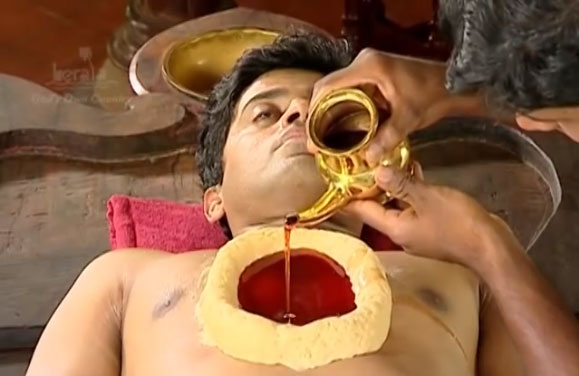Healthy, tasty, vegetarian food prepared in their kitchen by ayurvedic chefs as per doctor’s instructions. Diet is a part of ayurvedic treatment, so the physician will make diet recommendations based on your body’s constitution and you will need to abide by it. Many centres grow their own vegetables to ensure their organic quality. You will most likely enjoy the food.
Caretakers and companions may order food at the in house restaurants or eat out. If you would like a kitchen in your room, please tell us when we plan your treatment; we’ll find a centre that has suites with kitchenettes.

 Patients in medically stable conditions who do not require constant medical monitoring may seek ayurvedic treatments. The chronicity and stage of the disease determine if it can be cured or alleviated and managed. After studying the patient’s constitution and the stage to which the disease has progressed, the physician decides on the appropriate treatment goal i.e. whether the treatment should be aimed at relieving symptoms (palliative treatment/shamana chikitsa) or eliminating the cause of the disease (curative treatment/shodhana chikitsa).
Patients in medically stable conditions who do not require constant medical monitoring may seek ayurvedic treatments. The chronicity and stage of the disease determine if it can be cured or alleviated and managed. After studying the patient’s constitution and the stage to which the disease has progressed, the physician decides on the appropriate treatment goal i.e. whether the treatment should be aimed at relieving symptoms (palliative treatment/shamana chikitsa) or eliminating the cause of the disease (curative treatment/shodhana chikitsa).